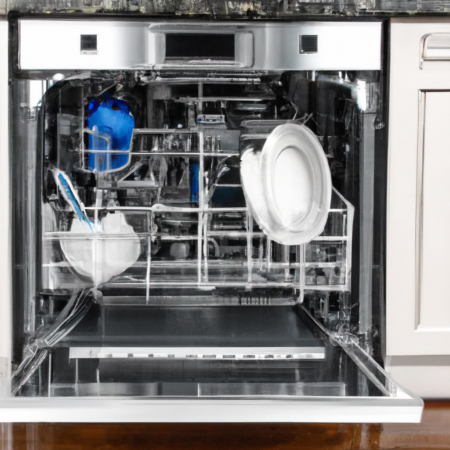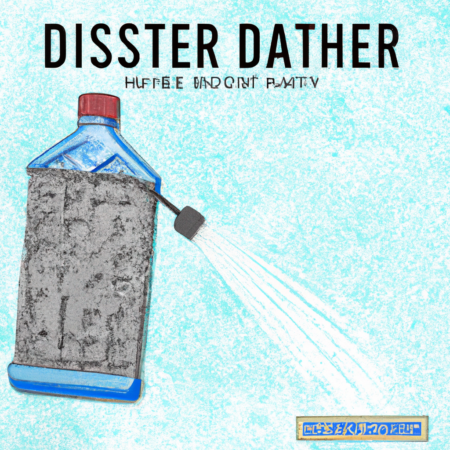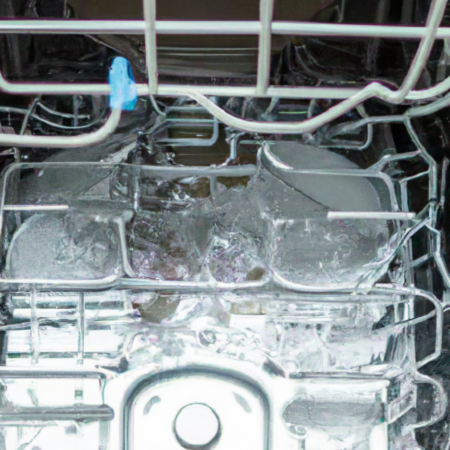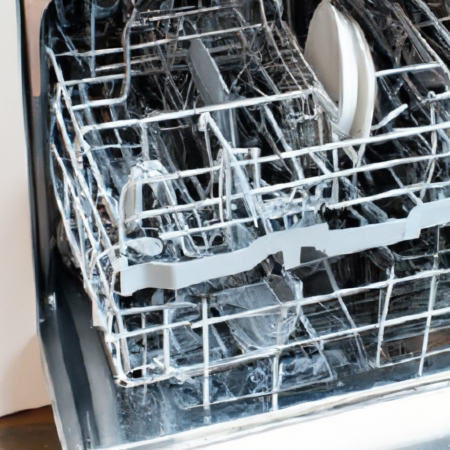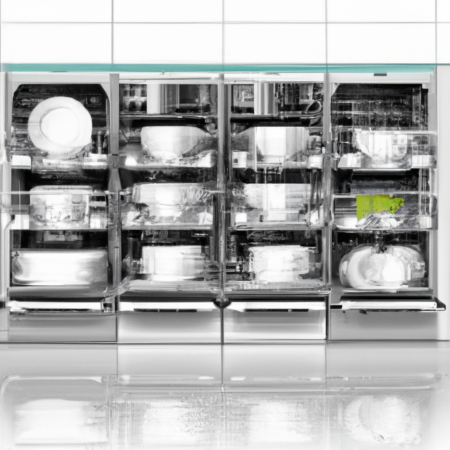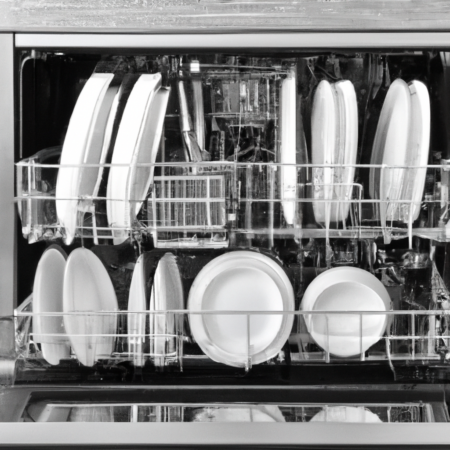So, you’ve just purchased a brand new set of dishes and you’re excited to start using them. But before you go ahead and pop them into the dishwasher, you want to make sure they’re safe to wash in there. After all, the last thing you want is to ruin your shiny new plates or glasses. But how do you know if something is dishwasher safe? Don’t worry, we’re here to guide you through it. In this article, we’ll explore a few key indicators that will help you determine if an item can safely go into the dishwasher or not.
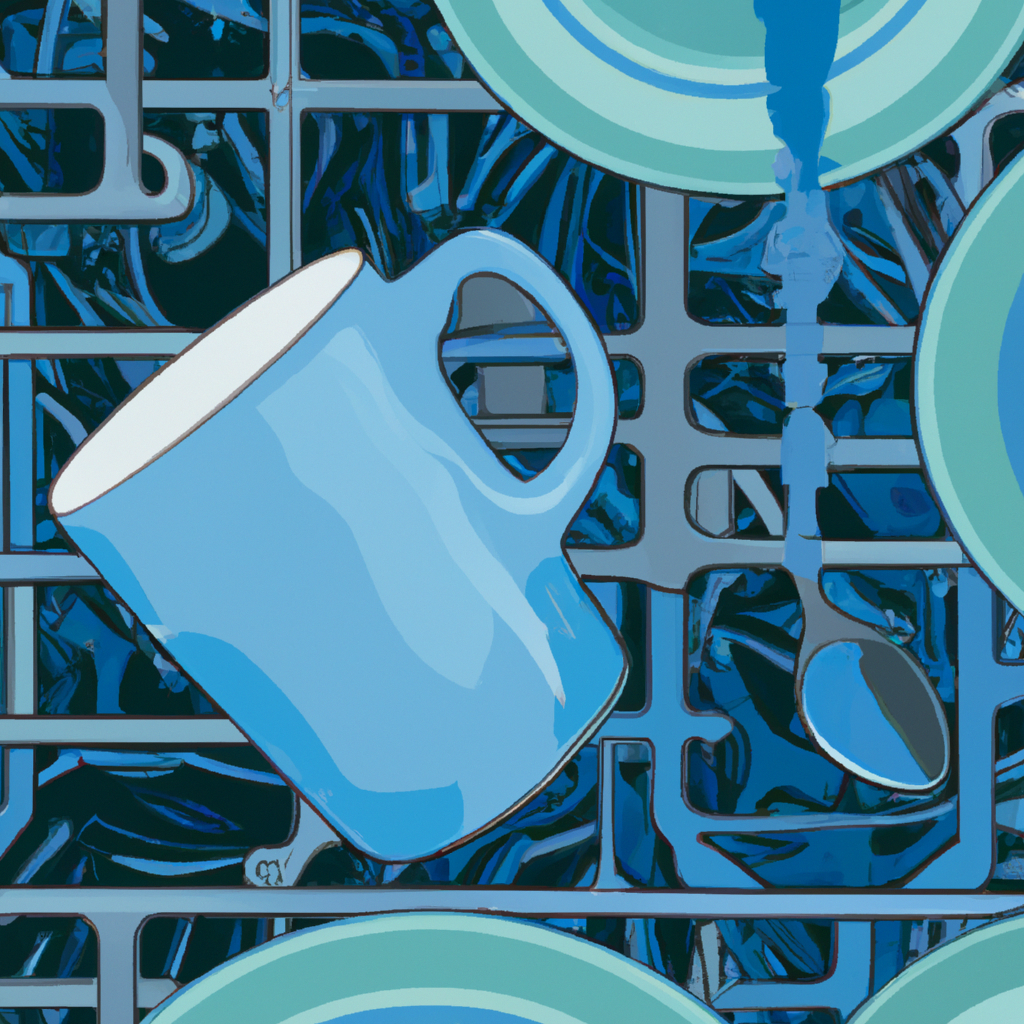
Understanding the Concept of ‘Dishwasher Safe’
Definition of ‘Dishwasher Safe’
When an item is labeled as “dishwasher safe,” it means that the item has been tested and deemed suitable for cleaning in a dishwasher without suffering any damage. The term applies to various types of dishware, including glass, ceramic, stainless steel, and certain types of plastics. Manufacturers conduct specific tests to ensure that these items can withstand the high temperature, water pressure, and detergent used in a dishwasher.
Importance of using dishwasher safe items
Using dishwasher safe items offers several benefits. Firstly, it saves time and effort as you don’t have to hand wash each individual dish. It also ensures proper sanitation, as dishwashers use high temperatures and efficient detergents to remove bacteria and food particles that may be missed during hand washing. Additionally, dishwasher safe items are less likely to break or chip compared to hand washing, prolonging their lifespan. Lastly, using dishwasher safe items helps you save water and energy, as dishwashers are designed to use these resources efficiently.
Types of Dishware Commonly Dishwasher Safe
Glass and Crystal items
Glass and crystal items are commonly dishwasher safe, provided they don’t have any delicate decorative elements that could be damaged by the high temperatures or harsh detergents. Most glassware, such as drinking glasses, tumblers, and bowls, can be safely cleaned in a dishwasher. However, it is always advisable to check for specific label indications to ensure their dishwasher safety.
Stainless Steel items
Stainless steel items, including cutlery, cookware, and kitchen utensils, are generally safe to be washed in a dishwasher. Stainless steel is a durable material that can withstand the high temperatures and strong detergents used in dishwashers. However, it is essential to check if the item has any additional components, such as handles or decorative pieces, that may not be dishwasher safe.
Plastic items
Not all plastic items can be safely cleaned in a dishwasher. However, there are specific types of plastic that are dishwasher safe, including heat-resistant plastics like polypropylene and polyethylene. These plastics can withstand the hot water and high temperatures of a dishwasher without warping or melting. Always check the label or try to identify the plastic recycling number to ensure its compatibility with a dishwasher.
Ceramic items
Most ceramic dishware, such as plates, bowls, and mugs, are dishwasher safe. Ceramic is a sturdy material that can withstand the dishwasher’s heat and cleaning process. However, delicate or hand-painted ceramics may not be dishwasher safe, as the high temperatures and water pressure can cause the paint or delicate designs to fade or chip.
Types of Dishware That Are Not Usually Dishwasher Safe
Wooden items
Wooden dishware, such as cutting boards, spatulas, or salad bowls, should not be washed in a dishwasher. Wood is a porous material that can absorb water, leading to warping, cracking, and potential splitting. Furthermore, the high temperatures and strong detergents can damage the protective finish or strip away any natural oils, causing the wood to lose its durability and luster.
Iron and Copper items
Iron and copper items should be hand washed to maintain their quality and appearance. The high temperatures and moisture inside a dishwasher can cause oxidization, leading to rust or discoloration on iron items. Similarly, the harsh detergents can tarnish copper and strip away any protective coatings, resulting in a dull and tarnished finish.
Non-coated Aluminum items
Non-coated aluminum dishware should not be cleaned in a dishwasher. Aluminum is a soft metal that can react with the high temperatures and detergents used in dishwashers, causing it to corrode or develop a dull appearance. This corrosion can not only affect the appearance of the dishware but can also contaminate the food being served in it.
Gold/silver/precious metal decorated items
Dishes with gold, silver, or other precious metal decorations should be hand washed. The high temperatures and strong detergents used in dishwashers can cause these metal decorations to become dull, fade, or even tarnish. Hand washing ensures the longevity and beauty of these valuable pieces.
Identifying Dishwasher Safe Dishes: Look for Labels and Symbols
Common symbols indicating dishwasher safety
Manufacturers usually incorporate specific symbols on the packaging or directly on the dishware to indicate if an item is dishwasher safe. The most common symbol is a small plate or cup with water droplets above it, denoting that the item can be washed in a dishwasher. Additionally, words like “dishwasher safe” or “dishwasher-friendly” may also be present on product labels or packaging.
Location of labels or symbols on dishes
The dishwasher safe labels or symbols can be found in different places on the dishware. They are commonly located on the bottom of plates, bowls, or mugs, and on the base or handle of utensils. Glassware and ceramic items may have these indications etched or printed on the sides. Manufacturers ensure that these labels are easily visible for consumers to identify and verify the dishwasher safety of the item.
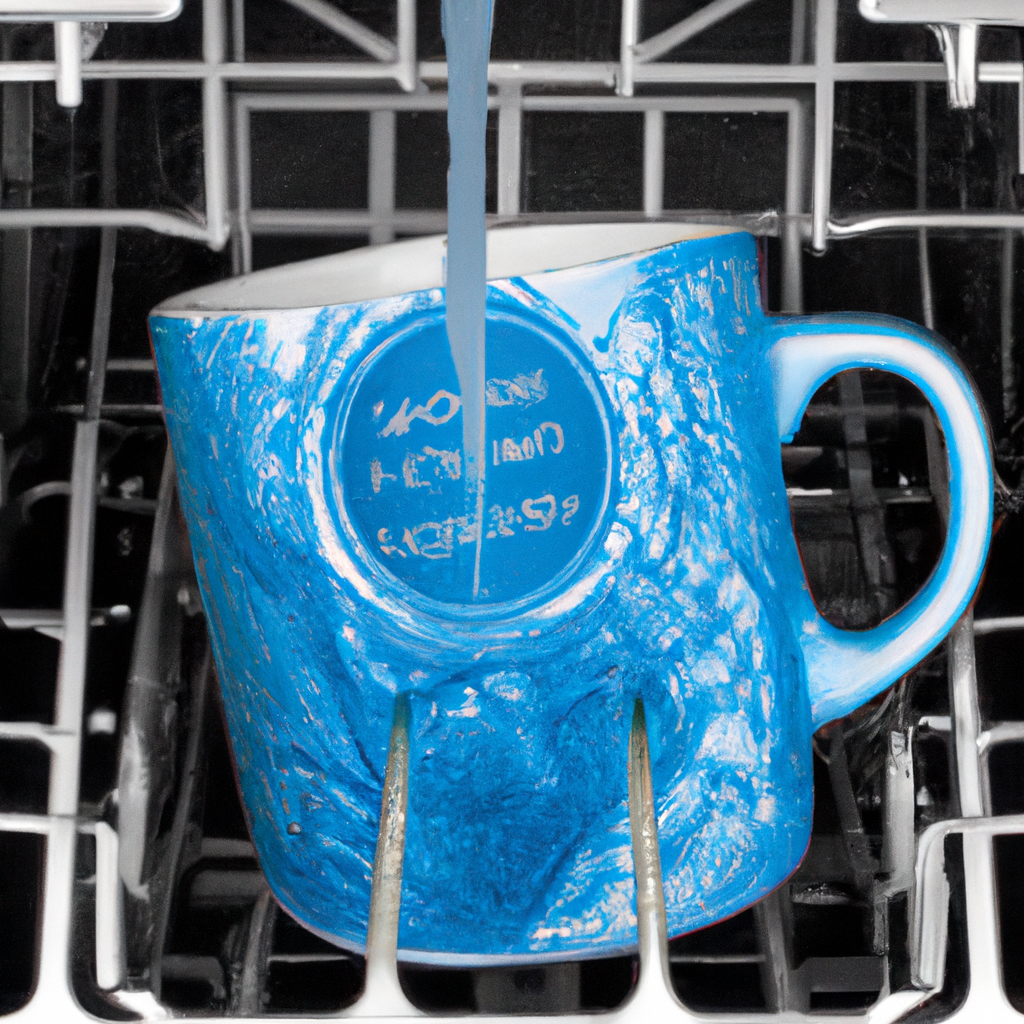
Recognizing Dishwasher Safe Plastics
Different types of plastics
Plastics can differ in their composition and can have varying tolerance to heat and detergents. It is essential to identify the type of plastic used in your dishware to determine its dishwasher safety. Some commonly used plastics include polypropylene, polyethylene, polycarbonate, and acrylonitrile butadiene styrene (ABS).
How to identify safe plastics for dishwasher
To identify safe plastics for the dishwasher, look for items made with polypropylene or polyethylene. These plastics are known to be dishwasher safe and can withstand the high temperatures and strong detergents used in dishwashers without melting or warping. It is advisable to check the label, packaging, or any symbols that indicate if the plastic item is dishwasher safe.
Plastic recycling numbers and what they mean
Plastics are often labeled with recycling numbers ranging from 1 to 7, commonly found inside a triangle symbol. These numbers indicate the type of plastic used and can provide hints about its dishwasher safety. Plastics labeled as #1 (PET), #2 (HDPE), #4 (LDPE), and #5 (PP) are generally considered dishwasher safe. However, plastics labeled as #3 (PVC), #6 (PS), and #7 (Other) are not recommended for dishwasher use due to their lower heat resistance or potential chemical leaching.
How to Treat Dishware with No Dishwasher Safe Label
Precautionary steps
If your dishware does not have a dishwasher safe label or symbol, it is best to take precautionary steps before attempting to clean them in a dishwasher. Hand washing is the safest option, but if you still choose to use the dishwasher, make sure to place the items on the top rack away from direct heat sources.
Doing a spot test
Before putting an item without a dishwasher safe label in the dishwasher, it is advisable to perform a spot test. Choose a discreet area of the dishware, apply a small amount of dishwashing detergent, and expose it to the dishwasher cycle. Afterward, inspect the tested area for any signs of damage, such as warping, discoloration, or fading. If the item remains unaffected, it may be safe to proceed with dishwasher usage.
Importance of erring on the side of caution
When dealing with items without a dishwasher safe label or symbol, it is essential to err on the side of caution. If in doubt, it is always safer to hand wash the dishware or seek alternative cleaning methods. The potential risks of damaging the item or compromising its appearance and functionality are too significant to ignore.
Damages Caused by Dishwashing Non-dishwasher Safe Items
Effect on item’s appearance
Dishwashing non-dishwasher safe items can result in various damages to their appearance. High temperatures and strong detergents can cause fading, discoloration, or even complete removal of paint or protective coatings on decorative items. Additionally, the water pressure and movement inside the dishwasher can lead to scratches, chipping, or cracking on delicate surfaces.
Effect on item’s function
Non-dishwasher safe items may also suffer functional damage in a dishwasher. For example, wood can warp, crack, or split due to the absorption of water, making it unusable. Similarly, certain metals can corrode or develop rust, compromising their durability and functionality. It is crucial to understand that non-dishwasher safe items may not perform as expected after being placed in a dishwasher.
Potential chemical hazards
Some dishware items may contain chemicals or coatings that are not suitable for dishwasher use. These chemicals can leach into food or drinks when exposed to high temperatures or strong detergents, posing a potential health hazard. It is crucial to follow manufacturer guidelines and only use dishwasher safe items to ensure the safety of both the dishware and the consumer.
Essential Tips to Ensure Dishwasher Safety
Proper loading of dishwasher
To ensure dishwasher safety and optimize cleaning efficiency, it is essential to load the dishwasher properly. Place dishes, utensils, and glassware securely in designated racks, making sure they are not overcrowded. Avoid nesting items tightly together, as it can hinder water flow and dishwashing performance. Additionally, separate silverware to prevent them from sticking together, ensuring thorough cleaning.
Use of appropriate detergent
Choosing the right detergent for your dishwasher is crucial to prevent any damage to your dishware. Use detergents specifically designed for dishwashing machines and avoid using dish soaps or handwashing detergents, as they can create excessive suds and leave residues on the dishes. Pay attention to the recommended dosage and adjust it based on the water hardness in your area for optimal cleaning results.
Regular maintenance of dishwasher
Regular maintenance of your dishwasher can enhance its performance and prolong its lifespan. Clean the dishwasher filter regularly to keep it free from debris and prevent clogs. Run periodic cleaning cycles using specialized dishwasher cleaners to remove any build-up or residue that may affect the dishwasher’s performance. Maintaining a well-functioning dishwasher ensures the safety and longevity of your dishware.
Benefits of Using Dishwasher Safe Dishes
Efficiency and convenience
Using dishwasher safe dishes provides significant efficiency and convenience. Instead of spending time hand washing each individual dish, you can load them into the dishwasher and let it take care of the cleaning process. This saves time and effort, allowing you to focus on other tasks or enjoy some well-deserved relaxation.
Energy and water saving
Dishwashers are designed to use water and energy resources efficiently. By using a dishwasher instead of hand washing, you can save a considerable amount of water, as dishwashers utilize precise amounts of water for each cycle. Moreover, modern dishwashers are designed to be energy-efficient, requiring less electricity compared to the energy consumed during manual dishwashing.
Preservation of dishes
Hand washing dishes can be rough on delicate or fragile items. Dishwashers, especially those with delicate or gentle cycles, provide a more controlled and gentle cleaning method. By using a dishwasher, you can ensure the preservation of your dishes, preventing chips, cracks, or breakage that can occur during hand washing.
What to Do If an Item Is Not Dishwasher Safe
Alternative cleaning methods
If an item is not dishwasher safe, there are alternative cleaning methods available. Hand washing using mild dish soap and warm water is the safest option for delicate or non-dishwasher safe items. Alternatively, you can use specialized cleaning products or follow the manufacturer’s recommended cleaning instructions to ensure the item’s longevity and proper maintenance.
Proper care and maintenance
Proper care and maintenance are crucial for dishware that is not dishwasher safe. Follow the manufacturer’s instructions for cleaning, drying, and storage. Avoid exposing these items to excessive heat or harsh chemicals that can cause damage. By giving them the necessary care and attention, you can ensure their longevity and continued usefulness.
Disposal or recycling of unfit items
In cases where an item is not suitable for dishwasher use and beyond repair, it may be necessary to dispose of or recycle it. Check with your local recycling facilities to determine if the item can be recycled. If not, dispose of it in accordance with local regulations. It is important to consider the environmental impact and dispose of unwanted items responsibly.
In conclusion, understanding the concept of ‘dishwasher safe’ is essential for ensuring the proper care and maintenance of your dishware. By identifying dishwasher safe dishes, recognizing safe plastics, and using them appropriately, you can enjoy the benefits of an efficient and convenient dishwasher while preserving the longevity and appearance of your dishware. It is important to follow the recommended guidelines, labels, and symbols provided by manufacturers to ensure the safety and durability of your dishware.


